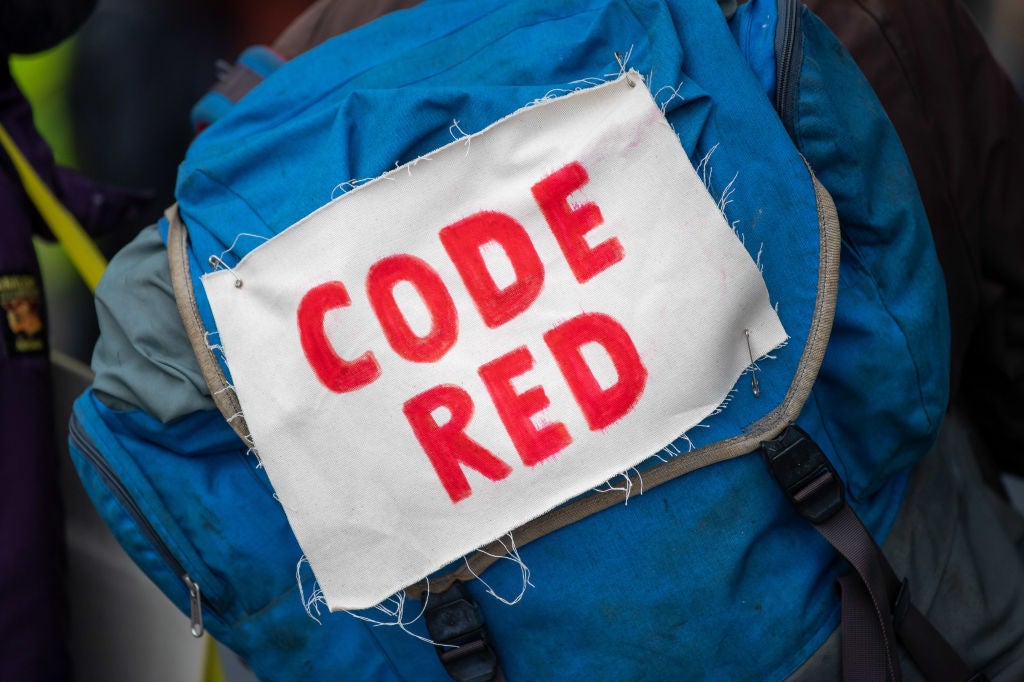It’s a sad state of affairs that the US Supreme Court’s ruling in West Virginia v. Environmental Protection Agency (EPA) wasn’t even the worst decision the country’s highest court issued over the course of a week in late June 2022, on a scale of one to WTF. The 6-3 conservative majority ruled that the agency, while having the authority to regulate greenhouse gas (GHG) emissions, had overstepped it in proposing a system to transform the country’s electricity mix by incentivising a shift away from coal. (A shift that has been happening anyway, with coal-powered generation down by more than 40% since 2012 while renewables have more than doubled, according to the US Energy Information Administration.)

The EPA ruling was really a vote on the Clean Power Plan – an Obama-era proposal which the Court temporarily blocked in 2016 before it was repealed under the Trump administration. There is no equivalent rule currently under consideration. Never mind that the economics for coal just don’t stack up. This Court hath spoken.

Access deeper industry intelligence
Experience unmatched clarity with a single platform that combines unique data, AI, and human expertise.
In limiting how the EPA can regulate GHG emissions, this decision makes it more expensive and slower for the US to meet its climate goals – short of Congress passing substantial legislation to enact President Joe Biden’s climate plan, which at present isn’t looking likely. (Coincidentally, the November mid-term elections take place the same day that COP27 gets underway in Egypt, with the hosts expecting those who are in a position to do so to up their climate targets.)
Internationally, Biden has pledged a 50-52% cut in emissions by 2030, compared with 2005 levels, and to reach net-zero by 2050. The intent is to use an array of measures including moving towards a zero-emissions power grid by 2035.
“The court’s ruling puts a damper on clean energy investment just when we should be ramping it up,” said Nat Keohane, president of the Center for Climate and Energy Solutions, an environmental nonprofit based in Arlington, Virginia, in a statement after the court’s opinion was published.
“The decision also threatens to put the United States further behind our international counterparts, who are stepping up the pace of domestic action to meet international climate commitments and reap the benefits of the transition to a net-zero emissions economy,” Keohane added.

US Tariffs are shifting - will you react or anticipate?
Don’t let policy changes catch you off guard. Stay proactive with real-time data and expert analysis.
By GlobalData“Climate disasters are growing more frequent, more deadly, and more costly every year,” said Vickie Patton, general counsel for the Environmental Defense Fund, another nonprofit. “We have clean solutions that will help protect people from the damages of climate change while also creating economic opportunities and jobs.”
Even the UN weighed in, with spokesman Stéphane Dujarric telling reporters the EPA ruling “is a setback in our fight against climate change, when we are already far off-track in meeting the goals of the Paris Agreement”. But, he added, “we also need to remember that an emergency as global in nature as climate change requires a global response, and the actions of a single nation should not and cannot make or break whether we reach our climate objectives.”
EU greenwashes gas, UK ignores climate brief
Given that the world is already not on track to meeting its climate goals, it was disheartening to see the US ruling followed by the EU voting to include gas in its taxonomy to guide sustainable investments. (Yes, yes, I know there is still a lot of coal in the European system, but that’s no excuse.) In the UK, meanwhile, only 70 of the union’s 650 members of Parliament and 769 peers – not even 5% of the total number of legislators in the UK – turned up for a climate briefing by the government’s chief scientific adviser Patrick Vallance on 11 July.
Individually, these are all terrible steps and harmful to any notion of climate leadership; collectively, they don’t bode well for the trust that progress at multilateral fora such as the UN climate talks needs. While the international climate policy arena is no stranger to US inaction following the Bush years, at least it always had the EU (which then of course included the UK) stepping up to the plate. It will be pretty hard for the EU to occupy that same slot and expect developing countries to trust it when it is essentially greenwashing investment in natural gas back home.
[Keep up with Energy Monitor: Subscribe to our weekly newsletter]
And while those in the Global North fiddle, least-developed countries (LDCs) burn, figuratively at least. At the start of last month’s UN climate talks in Bonn, Germany, to prepare for COP27 in November, LDC chair Madeleine Diouf Sarr told her peers that the climate crisis is worsening, with ever more devastating impacts being felt by vulnerable communities, while emissions keep rising elsewhere. This week’s Pacific Islands Forum’s leaders summit reportedly endorsed a proposal calling on the UN General Assembly to request that the International Court of Justice provides an advisory opinion on the obligations of states under international law to protect the rights of present and future generations against climate change impacts – an effort led by Vanuatu in a bid to spur urgent, decisive and critical climate action.
What the US Supreme Court’s EPA ruling overlooks, what the EU’s taxonomy disregards, what the UK parliamentarians’ intransigence forgets is that their actions have consequences. By making it harder to encourage wholesale change in the US electricity system, greenwashing investment in European gas projects, and burying one’s head in the sand about the scale of the climate crisis, these systems and policymakers are damning not only their own futures and future generations’, but those of the rest of the world.


